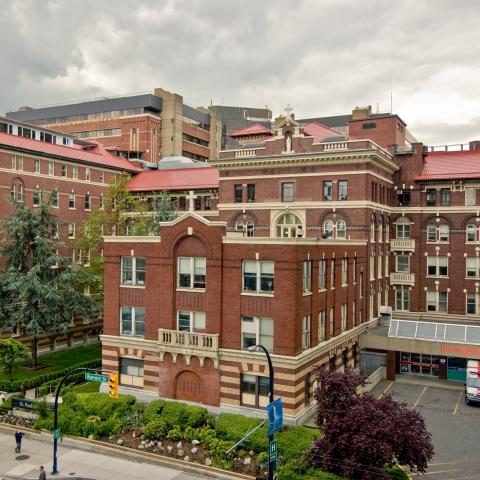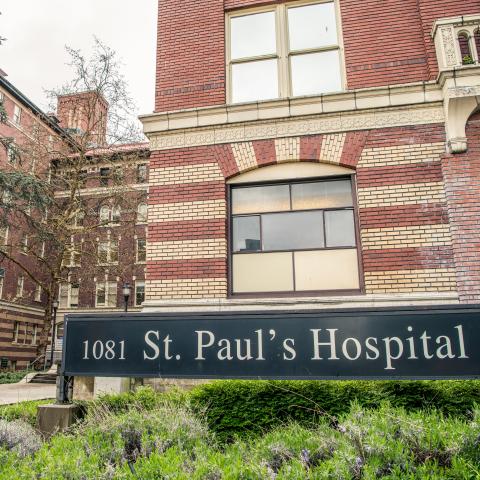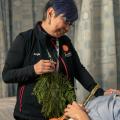Diverticular disease
An overview of Providence Health Care’s services and resources for adults living with colorectal cancer diverticulosis.
Overview
Diverticular disease includes diverticulosis and diverticulitis.
Diverticulosis is when small, bulging pouches form in the large intestine — also known as the colon. People with diverticulosis do not feel pain or symptoms from the pouches.
Many people develop diverticulosis as they age.
If a pouch becomes inflamed (swollen), the condition is called diverticulitis. The inflammation can range from mild to severe.
Contact
Pacific Gastroenterology Associates
770 – 1190 Hornby Street
Vancouver, BC, V6Z 2K5
Diagnosis & testing
Your health care provider will perform a physical exam to check if you have diverticulitis. They will then send you for diagnostic testing. Diagnostic tests help us ensure that your symptoms are from diverticulitis and not another disease with similar symptoms.
At Providence Health Care, we use four main diagnostic tests for diverticulitis:
Treatment & management
Your treatment plan will depend on whether your symptoms are mild or severe.
Clinics that treat diverticular disease
Support services
Providence Health Care offers a variety of services to support those we care for. The following services may be of use or benefit to you and your families.
Support for Indigenous Peoples
The Indigenous Wellness Liaison Team is here to support your health journey. Team members offer cultural support and healthcare advocacy. Learn more below or call them at 604-682-2344,62937 or email IWL@providencehealth.bc.ca.
Education & resources
Clinical trials & research
Advances in treatments are all thanks to medical research. While participating in research is a decision you should make for yourself in consultation with your care team, there is much activity in this area so please ask us about our research programs if you’re interested.
By taking part in research, you can help us all learn more about advancing health outcomes and find better ways to help people live and thrive. While you cannot assume benefit to yourself, your participation can make a difference in improving care for future patients.
The following clinical trials are currently enrolling volunteers. Please ask your care team for more information or contact the research team listed on each study or trial. For other information about research at Providence Health Care, please visit Providence Research.


